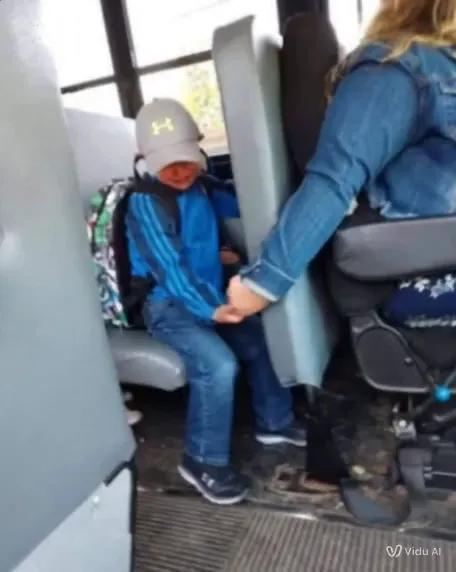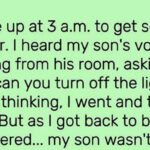Every morning, six-year-old Calvin would shoot out the door like a cannonball—yelling goodbye to the dog, waving his toy dino, and sprinting to the bus stop. His grin could light up the whole street. But slowly, that light dimmed. He stopped smiling. Started complaining of tummy aches. Begged for the hallway light at night. And worst of all—he stopped drawing. My little artist, who once covered walls in zoo animals, now only scribbled dark swirls. Or nothing at all. I knew something was wrong. So one morning, instead of watching from the porch, I walked him to the bus. He clutched his backpack like it might float away. When the doors opened, he hesitated. I whispered, “You’re okay.” He nodded,
climbed on—then I saw the smirks. The whispers. And Calvin’s sleeve brushing away a tear.But the bus didn’t move. Miss Carmen, the longtime driver, reached her arm back without a word. Calvin grabbed it like a lifeline. And she just held on. That afternoon, she didn’t just drop him off—she addressed the parents directly. “Some of your kids are hurting people,” she said. “This isn’t teasing. It’s cruelty. And I’ve seen enough.” Silence followed. Then she turned to me: “Your son’s been trying to disappear for weeks.” That night,


